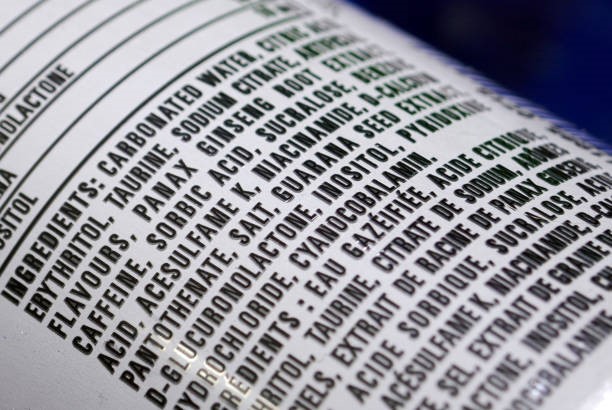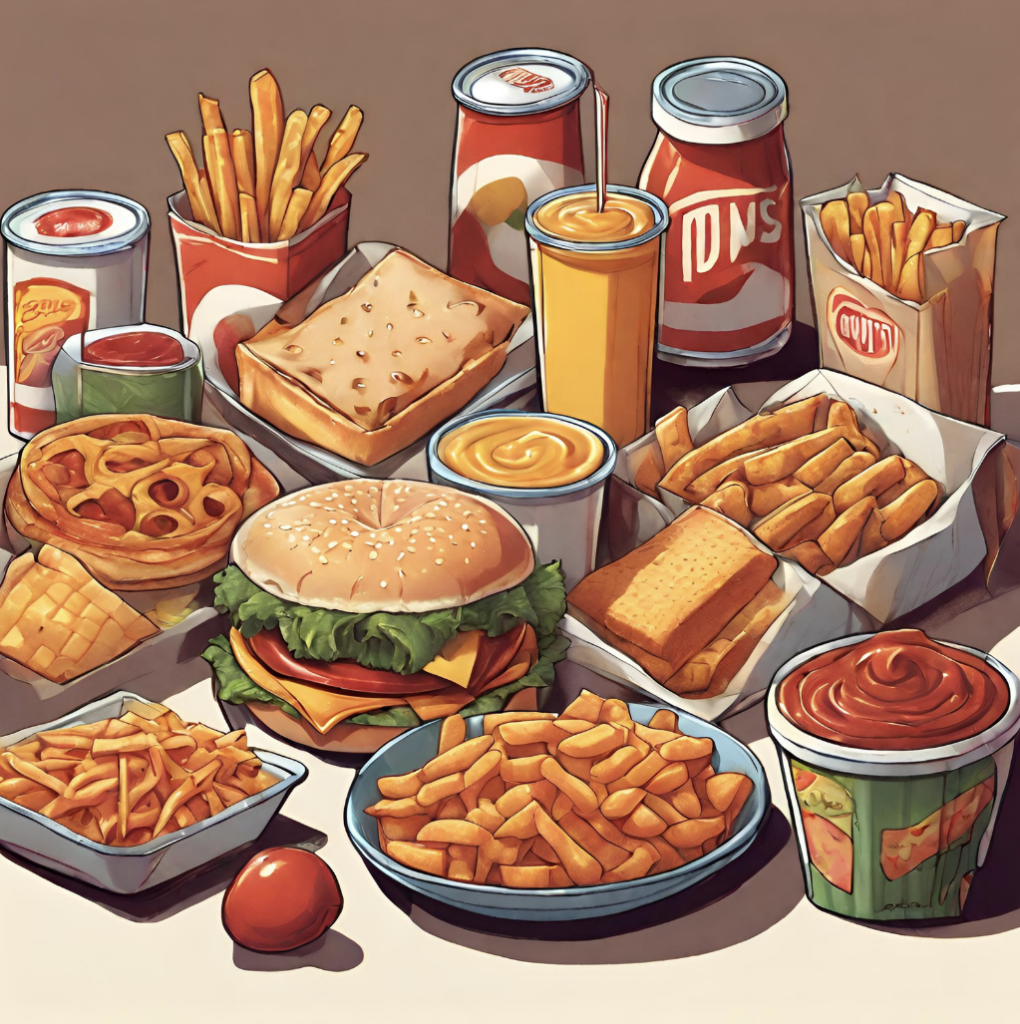What to Eat and Drink
A Guide to Avoiding Processed and Ultra-Processed Foods
In a culture where convenience is the primary motivator for eating, navigating the world of processed and ultra-processed foods may be challenging. Customers are becoming more and more health concerned, thus it’s critical to understand how different food products affect general health. Welcome to your comprehensive guide to selecting a nutritious diet and avoiding the risks associated with highly processed and processed foods.
Given the increase in health problems linked to lifestyle choices, it is more crucial than ever to embrace full, unadulterated foods. In this tutorial, we’ll discuss the detrimental effects of processed foods on your health as well as the potentially dangerous chemicals and preservatives included in these products. By the time it’s over, you’ll have practical guidance and understanding that you can put into practice to avoid processed and highly processed meals.
Understanding Processed and Ultra-Processed Foods
Foods that are processed are purposefully changed from their natural state before being ingested by people. These alterations usually involve the addition of salt, sugar, fat, or preservatives to enhance flavor or extend shelf life. On the other hand, ultra-processed foods are those that have undergone a lot of processing and have added artificial flavors, colors, sweeteners, and emulsifiers. These meals often include more toxic chemicals than essential elements.
Customers should be aware that consuming processed and ultra-processed food raises their chance of developing diabetes, heart disease, obesity, and a number of malignancies. These products usually include high levels of added sugar, bad fat, and salt, which contributes to the global rise in non-communicable diseases. Understanding the harmful effects of these foods is essential to make informed dietary choices that support long-term health and general well-being.
To make matters worse, processed foods may have wide-ranging impacts on the body. Blood sugar levels spike and then fall more quickly with these snacks than with full meals. Furthermore, by promoting oxidative stress, inflammation, and insulin resistance, the high amounts of unhealthy fats and added sugars included in processed and ultra-processed foods increase the risk of developing chronic diseases.

Identifying Processed and Ultra-Processed Foods in Your Diet
You need to learn to identify processed and ultra-processed foods in your diet in order to make informed choices. These meals are commonly found in grocery aisles, where they are tastefully arranged in boxes and bags of vibrant colors. Typical examples are packaged snacks, processed meats, sugar-filled cereals, sweetened drinks, and prepared meals. An essential way to determine how processed and additive-filled a food product is is to look at its nutrition label and ingredient list.
When you go over the ingredient list, look out for uncommon or difficult-to-pronounce components, excessive sugar, high salt, and unhealthy fat levels. Selecting whole foods and fewer processed alternatives will help you cut back on your consumption of these harmful chemicals and preservatives. To reduce your intake of processed and ultra-processed foods and enhance your overall health and wellness, you should give priority to fresh vegetables, whole grains, lean meats, and healthy fats.
Tips for Avoiding Processed and Ultra-Processed Foods
Although giving up processed and ultra-processed foods can seem daunting at first, with the right strategies, it is quite possible. Start by focusing on full, high-nutrient meals that are as close to their original state as is practical. Add additional plant-based foods, such as fresh fruits, vegetables, legumes, and nuts, to your diet to enhance your intake of essential vitamins, minerals, and antioxidants.
When you go grocery shopping, avoid going past the perimeter of the store, where the fresh fruit, dairy, and lean meats are often located. The majority of processed and ultra-processed items are located in the center aisles, so stay away from them. To reduce the temptation to grab quick food, consider planning and arranging your meals in advance if you are short on time. Making healthful meals and snacks can help you stick to a whole foods-oriented diet without sacrificing convenience.
Benefits of a Whole Foods Diet
There are several advantages to adopting a whole foods diet for your general health and wellbeing. Essential nutrients, such as vitamins, minerals, fiber, and antioxidants, are found naturally in whole foods and are critical for supporting a variety of body processes and fostering good health. Making whole foods a priority can help you feel more energised, promote good digestion, and keep a healthy weight more successfully than if you just eat processed and highly processed meals.
Furthermore, a diet rich in whole foods can help with better mood control, mental clarity, and cognitive performance. Whole foods are rich in nutrients, which promote brain function and may lower the risk of age-related cognitive decline. A strong immune system may also be supported by eating a wide variety of healthy foods, which lowers the risk of being sick and increases resistance to infections and illnesses in general.
Whole Food Alternatives to Processed and Ultra-Processed Foods
As you endeavor to decrease the quantity of processed and ultra-processed foods in your diet, consider substituting your preferred meals and snacks with whole foods. Make your own energy balls using dates, almonds, and seeds instead of buying premade snack bars. Instead of sugary morning cereals, consider oatmeal topped with nuts and fresh fruit for a satisfying and healthy start to your day.
Instead of packaged potato chips when you’re craving something salty, go for air-popped popcorn that has been seasoned with herbs and spices. By looking into whole food replacements, you may benefit from a wide range of delicious and nutritious alternatives without losing flavor or convenience. Trying out various whole food substitutes can help you develop a more creative and adventurous cooking style, making the transition from processed and ultra-processed meals pleasurable and long-lasting.

Tips for Making Healthier Choices
- Opt for Whole, Minimally Processed Foods: Choose foods in their natural state, such as fruits, vegetables, whole grains, lean proteins, and nuts. These options are packed with essential nutrients and devoid of added sugars, unhealthy fats, and excess sodium.
- Read Labels Carefully: Familiarize yourself with ingredient labels. Avoid products with long lists of artificial additives, preservatives, and excessive amounts of sugars and unhealthy fats.
- Cook at Home: By preparing your own meals, you have control over the ingredients used. It’s an excellent way to ensure that you’re nourishing your body with wholesome, unprocessed foods.
Conclusion
Choosing to steer clear of processed and ultra-processed foods isn’t just a small dietary tweak—it’s a powerful commitment to my well-being. When I opt for whole, nutrient-rich foods, I’m not only giving my body the essential vitamins and minerals it craves, but I’m also safeguarding it from the potential pitfalls of heavily processed alternatives. Each time I reach for a wholesome option, I’m making an investment in my future self, a deposit into a healthier, more energetic me. I picture it as a daily act of self-care, a way of saying ‘thank you’ to my body for all it does for me.
The benefits extend far beyond the present moment, laying the foundation for a more vibrant, resilient version of myself in the days and years to come. So, with every nutritious choice, I’m not just eating—I’m nurturing a healthier, happier me. My body will respond with gratitude and vitality.


